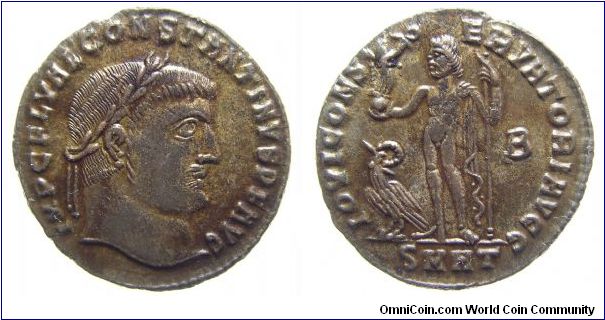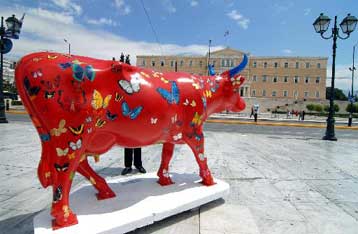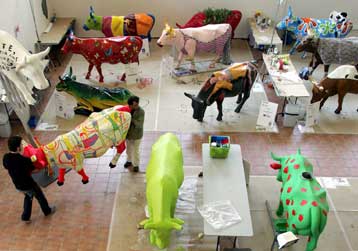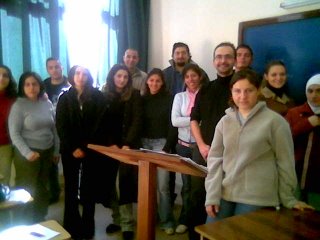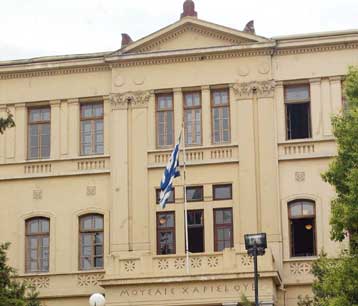 Falafel: a well known culinary treasure of the Middle East. I tried it for the first time at the lebanese snack-bar (what a name)"Fat Boy" in Athens, not far from the Omonoia Square- the limbo of immigrants.But you know how these things (recipes) go abroad, they are modified to suit the assumed local habits and taste. I have been trying for several years the original taste in Jordan, and I always appreciate their simple, and yet, surprisingly seductive taste: chick peas in reality, with spices, lots of oil (deep-fried they are), full of proteins and cholesterol I guess, but despite all odds, I adore them, especially if combined with well prepared homos and fol (two other vegetarian temptations, made again with chick-peas and broad beans, respectively). This kind of food is cheap and affordable for less priveleged families and it makes many times the menu of a full-family outing. It is nice the scene on Friday noon, that children bring to the shop an empty dish, to be filled with homos as the necessary appetizer for the big Friday lunch gathering. Now, the comment comes from the careful gaze of The Black Iris of Jordan, in his posting- yesterday.In his text, Nas informs his readers that in nearby Iraq, Islamist militants informed the falafel vendors to either search for a new profession or expect the worst (execution)in two-weeks time. The reason is that falafel was not included in the diet of the Arabs during the times of the Prophet, therefore their consumption is a sin. I cannot be very sure what are the reasons or the credibility of these statements, but I am suspicious concerning the potentials of human cruelty and stupidity: they are spreading, contagious, and expansionist. I think sometimes our readings manage to prove precise, and this period I am reading again Nafisi's memoir, Reading Lolita in Tehran, and I watch page after page how restrictions were imposed gradually till they took the form of a destructive snowball. One starts with national pride, continues with moral values, jumps to religious integrity and ends up by controlling falafel and the length of eyelashes. It is a well tested and successful pattern of shifting reality.
Falafel: a well known culinary treasure of the Middle East. I tried it for the first time at the lebanese snack-bar (what a name)"Fat Boy" in Athens, not far from the Omonoia Square- the limbo of immigrants.But you know how these things (recipes) go abroad, they are modified to suit the assumed local habits and taste. I have been trying for several years the original taste in Jordan, and I always appreciate their simple, and yet, surprisingly seductive taste: chick peas in reality, with spices, lots of oil (deep-fried they are), full of proteins and cholesterol I guess, but despite all odds, I adore them, especially if combined with well prepared homos and fol (two other vegetarian temptations, made again with chick-peas and broad beans, respectively). This kind of food is cheap and affordable for less priveleged families and it makes many times the menu of a full-family outing. It is nice the scene on Friday noon, that children bring to the shop an empty dish, to be filled with homos as the necessary appetizer for the big Friday lunch gathering. Now, the comment comes from the careful gaze of The Black Iris of Jordan, in his posting- yesterday.In his text, Nas informs his readers that in nearby Iraq, Islamist militants informed the falafel vendors to either search for a new profession or expect the worst (execution)in two-weeks time. The reason is that falafel was not included in the diet of the Arabs during the times of the Prophet, therefore their consumption is a sin. I cannot be very sure what are the reasons or the credibility of these statements, but I am suspicious concerning the potentials of human cruelty and stupidity: they are spreading, contagious, and expansionist. I think sometimes our readings manage to prove precise, and this period I am reading again Nafisi's memoir, Reading Lolita in Tehran, and I watch page after page how restrictions were imposed gradually till they took the form of a destructive snowball. One starts with national pride, continues with moral values, jumps to religious integrity and ends up by controlling falafel and the length of eyelashes. It is a well tested and successful pattern of shifting reality.  I read the text last night and directly I connected the issue of control with the brilliant poem of Constantine Cavafy,"In a Large Greek Colony, 200 BC"(1928)which I copy here, in both languages (Greek-English) since I have few minor objections concerning the translation : In a Large Greek Colony, 200 B.C.
I read the text last night and directly I connected the issue of control with the brilliant poem of Constantine Cavafy,"In a Large Greek Colony, 200 BC"(1928)which I copy here, in both languages (Greek-English) since I have few minor objections concerning the translation : In a Large Greek Colony, 200 B.C. That things in the Colony aren't what they should be
no one can doubt any longer,
and though in spite of everything we do move forward,
maybe -as more than a few believe-
the time has cometo bring in a Political Reformer.
But here's the problem, here's the rub:
they make a tremendous fuss
about everything, these Reformers.
(What a relief it would be
if they were never needed.)They probe everywhere,
question the smallest detail,
and right away think up radical changes
that demand immediate execution.
Also, they have a liking for sacrifice:
Get rid of that property;your owning it is risky:properties like those are what ruin colonies.Get rid of that income,and the other connected with it,and this third, as a natural consequence:they are substantial, but it can't be helped-the responsibility they create is damaging.
And as they proceed with their investigation,
they find an endless number of useless things to eliminate-
things that are, however, difficult to get rid of.
And when, all being well, they finish the job,
every detail now diagnosed and sliced away,
and they retire (also taking the wages due to them),
it's a wonder anything's left at all
after such surgical efficiency.
Maybe the moment hasn't arrived yet.
Let's not be too hasty: haste is a dangerous thing.
Untimely measures bring repentance.
Certainly, and unhappily, many things in the Colony are absurd.
But is there anything human without some fault?
And after all, you see, we do move forward.
Εν μεγάλη Ελληνική αποικία, 200 π.Χ.Ότι τα πράγματα δεν βαίνουν κατ' ευχήν στην Αποικία
δεν μέν' η ελαχίστη αμφιβολία,
και μ' όλο που οπωσούν τραβούμ' εμπρός,
ίσως, καθώς νομίζουν ουκ ολίγοι, να έφθασε ο καιρός
να φέρουμε Πολιτικό Αναμορφωτή.
Όμως το πρόσκομμα κ' η δυσκολία
είναι που κάμνουνε μια ιστορία
μεγάλη κάθε πράγμα οι Αναμορφωταί
αυτοί. (Ευτύχημα θα ήταν αν ποτέδεν τους χρειάζονταν κανείς). Για κάθε τι,
για το παραμικρό ρωτούνε κ' εξετάζουν,
κ' ευθύς στον νου τους ριζικές μεταρρυθμίσεις βάζουν,
με την απαίτησι να εκτελεσθούν άνευ αναβολής.
Έχουνε και μια κλίσι στες θυσίες.
Παραιτηθείτε από την κτήσιν σας εκείνη·η κατοχή σας είν' επισφαλής:η τέτοιες κτήσεις ακριβώς βλάπτουν τες Αποικίες.Παραιτηθείτε από την πρόσοδον αυτή,κι από την άλληνα την συναφή,κι από την τρίτη τούτην: ως συνέπεια φυσική·είναι μεν ουσιώδεις, αλλά τι να γίνει;σας δημιουργούν μια επιβλαβή ευθύνη.Κι όσο στον έλεγχό τους προχωρούνε,
βρίσκουν και βρίσκουν περιττά, και να παυθούν ζητούνε·
πράγματα που όμως δύσκολα τα καταργεί κανείς.
Κι όταν, με το καλό, τελειώσουνε την εργασία,
κι ορίσαντες και περικόψαντες το παν λεπτομερώς,
απέλθουν, παίρνοντας και την δικαία μισθοδοσία,
να δούμε τι απομένει πια, μετά
τόση δεινότητα χειρουργική.
-Ίσως δεν έφθασεν ακόμη ο καιρός.
Να μη βιαζόμεθα· είν' επικίνδυνον πράγμα η βία.
Τα πρόωρα μέτρα φέρνουν μεταμέλεια.
Έχει άτοπα πολλά, βεβαίως και δυστυχώς, η Αποικία.
Όμως υπάρχει τι το ανθρώπινον χωρίς ατέλεια;
Και τέλος πάντων, να, τραβούμ' εμπρός.




